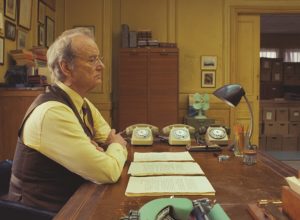The 2016 movie Jackie, which stars Natalie Portman as Jacqueline Kennedy Onassis and is directed by the Chilean filmmaker Pablo Larraín, was an unexpected gem. It delved into the mind of the former First Lady before and after the Dallas assassination of J.F.K., and how, amid her devastation, she found a way to empower herself and her children.
Larraín has now come up with something of a companion piece, showing in theaters only: Spencer, starring Kristen Stewart as the late Princess Diana. Spencer is, of course, her family name. The movie takes place 10 years into Diana’s marriage with Prince Charles, and it limits itself to a few days over the Christmas holiday, which the royal family traditionally spends at the Queen’s country estate in Sandringham. (Germany’s Nordkirchen Castle substituted for it in the film.)

Things are reaching a low point in Diana’s life. Having supplied two heirs in William and Harry, her function within the family has become that of a useless trophy: her marriage with Charles is loveless; she is given little authority as a mother; and the endless rituals of British royal life serve only as a prison of almost solitary confinement. Day by day, she is losing her mind.
Larraín and Stewart (and the screenwriter, Steven Knight) take this as an opportunity to explore the dangers, costs, and machinery of fame and public role-playing, especially when the player is naïve, as Diana surely was when she married Charles at age 20. Both director and star are simultaneously probing yet discreet, and disquietingly honest. The movie, which is quite gentle in depicting Charles and the Queen, avoids melodrama and focuses instead on Diana’s desperation and her ultimate resourcefulness. And despite its dour atmosphere, Spencer is oddly uplifting. Not a whole lot happens, so some might find it boring. But it’s less a drama of privilege than a psychological thriller — restrained, intelligent, and exquisitely told.
“Exquisite” is a word often paired with the work of filmmaker Wes Anderson. Or, alternatively, his movies might be seen as precious and twee. His camerawork and editing are highly stylized — filled with largely static, pictorial set-ups and choppy cuts — which matches the rat-a-tat deadpan acting style he always elicits from ensembles of marvelous actors, many of them reappearing in film after film.

Anderson’s obsessively curlicued storybook production design is also legend, from his Oscar-winning The Grand Budapest Hotel to The French Dispatch, now playing in theaters. The latter movie is a satirical love letter to a literary magazine much like the New Yorker during the era when William Shawn reigned as editor. In Anderson’s movie, the magazine is based in Paris (known as “Ennui” in the film), not New York City, and its stories retain that oh-so-Parisian je ne sais quoi, even though they’re all in English and seem designed for American consumption.
The French Dispatch doesn’t have the same narrative drive of Anderson’s best work because it’s primarily divided into three separate stories that the Shawn-like Arthur Howitzer Jr. (Bill Murray) edits: one concerning an imprisoned lunatic (Benicio Del Toro) who becomes an overnight art-world sensation; another involving a student political uprising, with Timothée Chalamet and, as his mother, Frances McDormand; and a third, written by a James Baldwin-like Jeffrey Wright, about the private chef and kidnapped young son of a police chief.
There are a host of charming performances, cameos, and plot digressions, more than can be encapsulated here, but suffice it to say that Anderson and New Yorker enthusiasts will be titillated, and others may become impatient or even exasperated. But no matter what one’s taste, it’s undeniable that Anderson is in top form, and The French Dispatch is an impressive spectacle.

The notion of spectacle leads me to Dune, which was released in theaters and HBO Max concurrently, though it should be seen on a big screen (at least at first). Having not read Frank Herbert’s sci-fi novel or its sequels and shared the cult devotion of its followers, I was drawn to this current adaptation by Quebecois director Denis Villeneuve by a rave from Paul Krugman in the New York Times. Krugman, a political-economic columnist, is a Dune fan, and he felt that Villeneuve had captured the spirit of Herbert’s work — its political complexity and medieval sword-and-sorcery battles — more faithfully and successfully than David Lynch’s version in 1984, which was a box-office dud.
I had seen the relatively campy Lynch version and enjoyed it, though I can see how Villeneuve’s evocation of a sci-fi world dominated by rival feudal houses and a mystical substance known as spice, mined on the planet of Arrakis in the distant future, is more fulfilling to devotees.
The new Dune film is a grand and visually stunning epic, though in nearly three hours it covers only half of Herbert’s novel and is subtitled “Part One.” It’s not shallow, and the acting by Timothée Chalamet, as the young hero; Oscar Isaac and Rebecca Ferguson, as his parents; Stellan Skarsgård, in blubbery prosthetics, as a villainous challenger; and Javier Bardem as a rebel leader, among others, have the appropriate mythological gravitas. In short, it’s worth seeing, and I’ll leave it to more passionate Dune diehards to make the final judgment.
